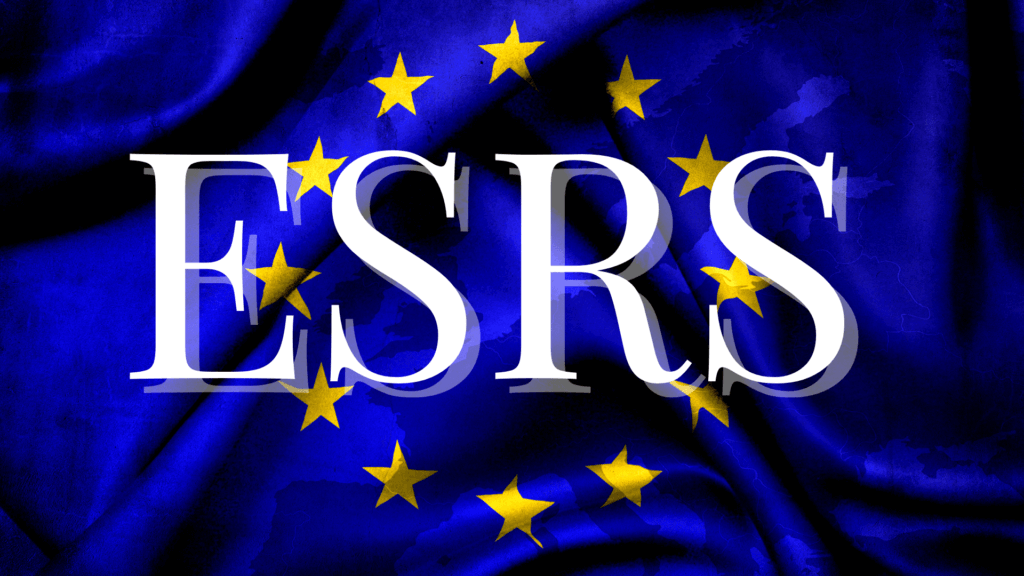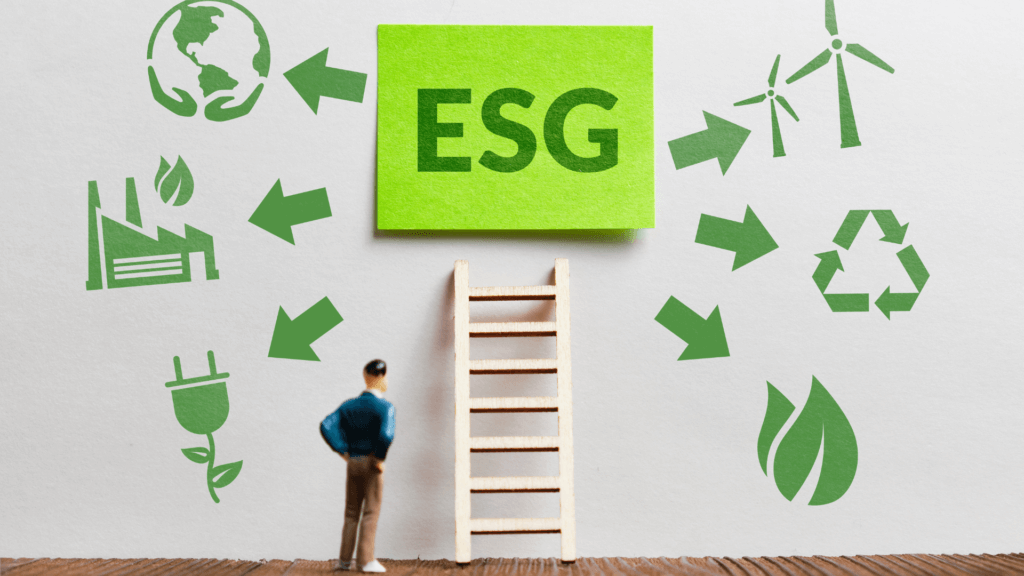The key importance of European Sustainability Reporting Standards (ESRS) in sustainable business


The European Sustainability Reporting Standards (ESRS) represent a key point in sustainability, setting uniform reporting standards. Their implementation is becoming mandatory for companies listed on European stock exchanges, in accordance with the CSRD and the disclosure obligation itself is now dependent on the size of the company. ESRS cover areas related to ESG, non-financial reporting and environmental, social and governance information. These standards have a positive impact on the way companies report, their business decisions and their responsibility to the environment and society. Their implementation is the first step to sustainable business.
The European Sustainability Reporting Standards (ESRS) adopted by the European Commission cover the full range of environmental, social and corporate governance issues, including climate change, biodiversity and human rights. They provide investors with information to understand the sustainability impact of the companies in which they invest.
Common standards are intended to help companies reduce reporting costs and prevent the use of voluntary standards, as is currently the case – as this generates problems with the quality of entities’ reporting. Only their unification will make companies’ public reporting reliable.
For consistent and reliable reporting, the European Commission has adopted the European Sustainability Reporting Standards (ESRS), the first of which has now been approved.
The standards cover the full range of environmental, social and corporate governance issues, including climate change, biodiversity and human rights. They provide investors with information to understand the sustainability impact of the companies they invest in.
Common standards are intended to help companies reduce reporting costs and prevent the use of voluntary standards, as is currently the case – as this generates problems with the quality of reporting. Only their unification will make companies’ public reporting reliable.

The introduction of the CSRD (Corporate Sustainability Reporting Directive) has expanded the scope of non-financial reporting obligations (environmental impact, social responsibility, and corporate governance), encompassing a larger number of businesses. This, in turn, compels companies to integrate sustainable development issues into their operations and disclose information on them, contributing to increased transparency and accountability in the business world.
Mairead McGuinness, Commissioner for Financial Services, Financial Stability, and Capital Markets Union, stated:
“Mairead McGuinness, Commissioner for Financial Services, Financial Stability and Capital Markets Union, said: “The standards we have adopted today are ambitious and are an important tool underpinning the EU’s sustainable finance agenda. They strike the right balance between limiting the burden on reporting companies while at the same time enabling companies to show the efforts they are making to meet the green deal agenda, and accordingly have access to sustainable finance.”
Companies previously subject to the NFRD (large listed companies, large banks, and large insurance companies – all if employing over 500 employees):
Large listed companies outside the EU employing over 500 employees: financial year 2024, with the first sustainable development statement published in 2025.
Other large companies, including other large listed companies outside the EU: financial year 2025, with the first sustainable development declaration published in 2026.
SMEs listed on the stock exchange, including SMEs listed on the stock exchange outside the EU: financial year 2026 (publication in 2027). SMEs listed on the stock exchange may decide to exempt from reporting requirements for the next two years.
The latest possible start date for reporting by SMEs listed on the stock exchange is 2028, with the first sustainable development statement to be published in 2029.
Enterprises outside the EU that generate over EUR 150 million annually in the EU and have a branch in the EU with turnover exceeding EUR 40 million or a subsidiary that is a large enterprise or an SME listed on the stock exchange will be required to submit reports on their impact on sustainable development at the group level of that enterprise outside the EU from the tax year 2028, publication in 2029.

The Corporate Sustainability Reporting Directive (CSRD) imposes an obligation on companies to present their achievements in sustainable development. However, these regulations take into account the differences between large companies and small and medium-sized enterprises (SMEs), which may not have the same resources or capabilities to meet these requirements.
To meet this obligation, SMEs (small and medium-sized enterprises) will receive a simplified standard ESRS 2, focusing on key areas of sustainable development, which will facilitate its application. The European Financial Reporting Advisory Group (EFRAG) has introduced a simplified version of ESRS. These standards are tailored to the size and complexity of SMEs and take into account their individual needs and circumstances. The implementation of ESRS requirements will be gradual. Until 2024, companies will be able to use current ESG indicators and new standards. From 2025, ESRS will become mandatory for all companies listed on stock exchanges in Europe.
The ESRS consists of three main groups of standards that cover different aspects of sustainability, covering both environmental, social and corporate governance issues.
All the Standards were updated from an initial set of draft Standards that were issued by EFRAG in November 2022.
The introduction of the new standards will have a significant impact on companies, requiring changes in reporting processes and expanding information on ESG topics such as greenhouse gas emissions and risk management. The new guidelines also aim to increase transparency in supply chains and improve the quality of information provided. This, in turn, will make it easier for customers and investors to access sustainability data, helping them make more informed decisions. The ESRS standard will contribute to a unified approach in the reporting of sustainability information, enabling better comparison of companies’ performance and more accurate assessment of their environmental and social impacts.

The ESG indicators, which are included in the annual reports, are designed to enable an accurate assessment of a company’s sustainability performance, to check the legality of its operations in accordance with sustainability regulations, and to compare it with other companies in the industry.
ESRS are important both for investors, who are increasingly considering sustainability when making investment decisions, and for society, which increasingly expects transparency and accountability from companies. Reporting in accordance with them ensures that a company meets regulatory requirements imposed by the European Commission.
ESRSs are a key element of business strategy for companies operating in the European Union. Their implementation not only supports effective risk management of ESG issues, but also builds stakeholder trust and loyalty through transparent and credible reporting. Preparing a company to meet these standards is critical to future business success.
Do you want to add full non-financial (ESG) reporting to your company’s environmental policy? Do you intend to pursue the Sustainable Development Goals (SDGs) as part of your business decisions? Curious about how achieving climate neutrality for your company helps combat the climate crisis?
Benefit from the experience of our experts and count the carbon footprint of your organization and the entire value chain. We will provide detailed information on implementing sustainability into your business model during a free consultation. Sign up and start taking action today.
Plan Be Eco Supplier – a comprehensive platform for decarbonization and […]
Transport and logistics (the TSL sector) have long been a […]
How to Simplify and Standardize Environmental Data from Suppliers? In […]